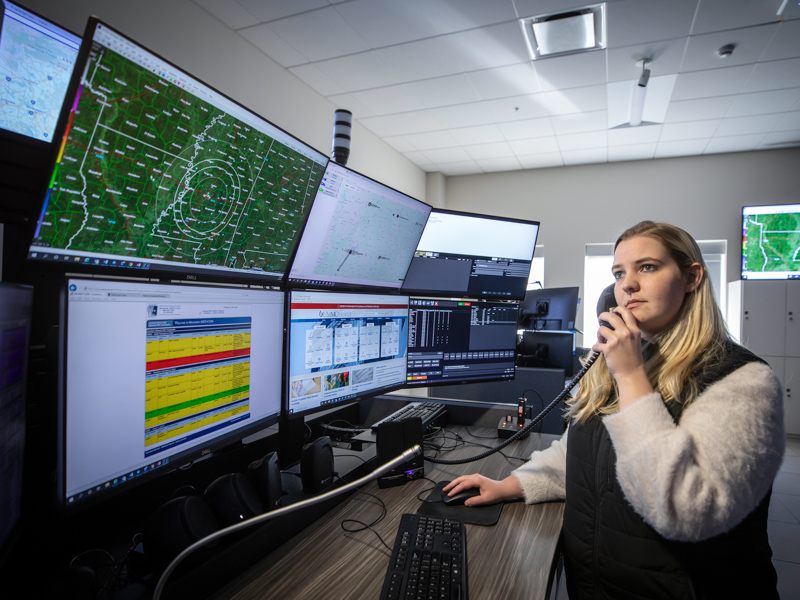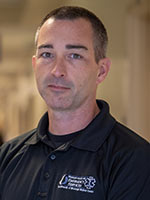Preparation is key to whether you will weather severe storm

Imagine a tornado tearing through a community like a 60 mph runaway train. With adequate warning, most residents are able to seek shelter.
Now picture that same locomotive catapulting itself toward the University of Mississippi Medical Center, where hundreds of the most vulnerable are reliant on staff, not only for healthcare, but also mobility.
Though not visuals we relish, they are scenarios UMMC must plan for to increase the chances of survival for everyone on campus, including patients.
The Mississippi Center for Emergency Services is therefore using Severe Weather Preparedness Week – which starts today – to promote the importance of education and awareness to employees who work in inpatient units.

“Inpatient units are some of our most vulnerable simply because many of these patients aren’t ambulatory and thus will be entirely dependent on our staff to take care of them during a time of emergency,” said Stephen Houck, clinical director of MCES. “We want to make sure our staff has the knowledge and resources they need to not only ensure that they are safe and their co-workers are safe, but also the patients they are caring for are safe.”
To achieve that, a team of safety officers and emergency response managers will visit UMMC’s 24 inpatient units on Tuesday and Thursday, said Jason Smith, manager for emergency services. Presentations for night shift employees will begin at 5 a.m., and day shift at 8:30 a.m.
The sessions, which run 15 to 20 minutes, will cover UMMC severe weather notifications and how the units should respond when they are issued.
The timing is strategic, given the number of severe weather incidents that traditionally occur during spring months in the state, said Smith. In 2020, the National Weather Service’s Jackson office documented 64 tornadoes for its service area, which covers parts of Mississippi, Louisiana and Arkansas. There were 103 documented tornadoes in 2019.

“None of these tornadoes directly threatened the UMMC campus, but MCES is highly engaged with the NWS forecasting products and monitoring of weather when there is potential for severe activity,” said Smith.
Though other weather emergencies – including high winds, floods and flash floods, winter storms, and ice storms – can cause significant damage and loss of lives, “tornados are always [of pressing concern] simply because they are fairly common in our area, can appear rapidly, and can cause a significant amount of damage in a short period of time,” said Houck.
“Additionally, we have a lot of glass in our hospital so it’s important for staff to know where their safe areas are when bad weather is projected. From a system standpoint, tornados, even if they don’t directly impact the hospital, have the potential to cause a mass casualty incident resulting in an influx of patients to UMMC and other area hospitals.”
As the safety net hospital for Mississippi, the impact of UMMC sustaining damage would be felt statewide, said Smith, potentially hindering the ability to accept patients from outside hospitals.
“All hospitals are vulnerable to severe weather, but as the only Level 1 trauma center in the state, we have the added responsibility of not only making sure that we are prepared from the standpoint of our staff and patient safety,” explained Houck. “But we also have to be prepared to receive trauma patients from damage surrounding UMMC as this is the default location that these patients will come even if we do sustain damage.”
Though this week’s presentations are limited to inpatient units, Smith said other departments can contact him directly to schedule sessions.
Emergency management uses the Alert U System to notify employees and students of severe weather conditions and shares preparedness tips on the campus intranet under the Emergency tab.
“Severe weather watches and warnings are ineffective if people do not receive the message or are not knowledgeable of the safety measures to perform, at home or away from home,” said Smith.


